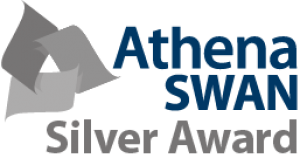You are here
- Home
- Dr Nicola McIntyre
Dr Nicola McIntyre
Professional biography
Dr Nicola McIntyre
Current roles and appointments
- Staff tutor: School of Life, Health and Chemical Sciences
- Module team chair (SD329)
- Nations staff tutor (Ireland)
- Member of STEM teaching committee
- STEM ambassador
Qualifications
PhD: Neuroscience, University of Bristol (1999)
BSc Hons: Pharmacology, University of Glasgow (1993)
Research interests
Research interests:
My PhD and post-doctoral research focused on the cellular mechanisms underlying synaptic plasticity in the brain. These are the changes which take place in the brain during development and as a result of learning and forming memories. I was particularly interested in the hippocampus which is responsible for spatial memory and the amygdala which is important for fear-based memory.
Publications:
McIntyre, N and Thomson, L.A. (2019) “Implementing Maths Support for Health Science Students” In Advance HE STEM conference proceedings, 30-31 January 2019, Birmingham, U
Garden, Derek L. F. ; Kemp, Nicola ; Bashir, Zafar I.(2002) “Differences in GABAergic transmission between two inputs into the perirhinal cortex”, European Journal of Neuroscience, Vol.16(3), pp.437-444
Kemp, N and Bashir, Z.I. (2001), “Long-term depression: a cascade of induction and expression mechanisms” Progress in Neurobiology, Vol.65(4), pp.339-365
Kemp, N., Mcqueen, J., Faulkes, S., Bashir, Z.I. (2000) “Different forms of LTD in the CA1 region of the hippocampus: role of age and stimulus protocol” European Journal of Neuroscience, Vol.12(1), pp.360-366
K. Cho ; N. Kemp ; J. Noel ; J. P. Aggleton ; M. W. Brown ; Z. I. Bashir (2000), “A new form of long-term depression in the perirhinal cortex” Nature Neuroscience, Vol.3(2), p.150
Kemp, N ; Ziakopoulos, Z ; Garden, D ; Brown, Mw ; Bashir, Zi (2000), “Mechanisms of paired-pulse depression of GABAergic transmission in the perirhinal cortex in vitro.” European Journal Of Neuroscience, Vol.12 Suppl S, pp.374-374
Kemp, Nicola and Bashir, Zafar I. (1999) “Induction of LTD in the adult hippocampus by the synaptic activation of AMPA/kainate and metabotropic glutamate receptors” Neuropharmacology, Vol.38(4), pp.495-504
Kemp, N and Bashir, Z.I. (1998) “Glutamate receptor interactions required for LTD in adult rat hippocampus in vitro”. European Journal of Neuroscience, Vol.10 Suppl 10, pp.128-128
Kemp, N and Bashir, Z.I. (1997) “A role for adenosine in the regulation of long-term depression in the adult rat hippocampus in vitro”. Neuroscience letters, Vol.225 (3), pp.189-192
Kemp, N and Bashir, Z.I. (1997), “Long-term depression of synaptic transmission in the CA1 region of the adult rat hippocampus in vitro”. Journal Of Physiology-London, Vol.504P, pp.P212-P212
Kemp, N ; Bashir, Z.I (1997) “NMDA Receptor-dependent and -independent Long-term Depression in the CA1 Region of the Adult Rat Hippocampus In Vitro “ Neuropharmacology, Vol.36(3), pp.397-399
Kemp, N. ; Ziakopoulos, Z. ; Brown, M.W. ; Bashir, Z.I. (1996) “Long-term depression of synaptic transmission in the adult rat hippocampus and perirhinal cortex “ Journal of Physiology Paris, Vol.90(5-6), p.404
Kemp, N., Demendonca, A. and Bashir, Z.I. (1996), “Endogenous adenosine controls the induction of long-term depression of synaptic transmission in the CA1 region of the adult rat hippocampus in vitro” Journal Of Physiology-London, Vol.495P, pp.P63-P64
Teaching interests
Teaching interests:
I'm interested in how technologies can be used to faciltiate and enhance teaching in STEM subjects. In particular how online tutorials can be designed to best support students' learning.
Current Modules:
SD329: Signals and Perceptions; the science of the senses - module team chair
SK298: Brain, Mind and Mental Health - Author
SDK100: Introduction to Health Sciences - lead staff tutor
S295: The Biology of Survival - lead staff tutor
External collaborations
Member of the Northern Ireland Assembly All-Party group on STEM



